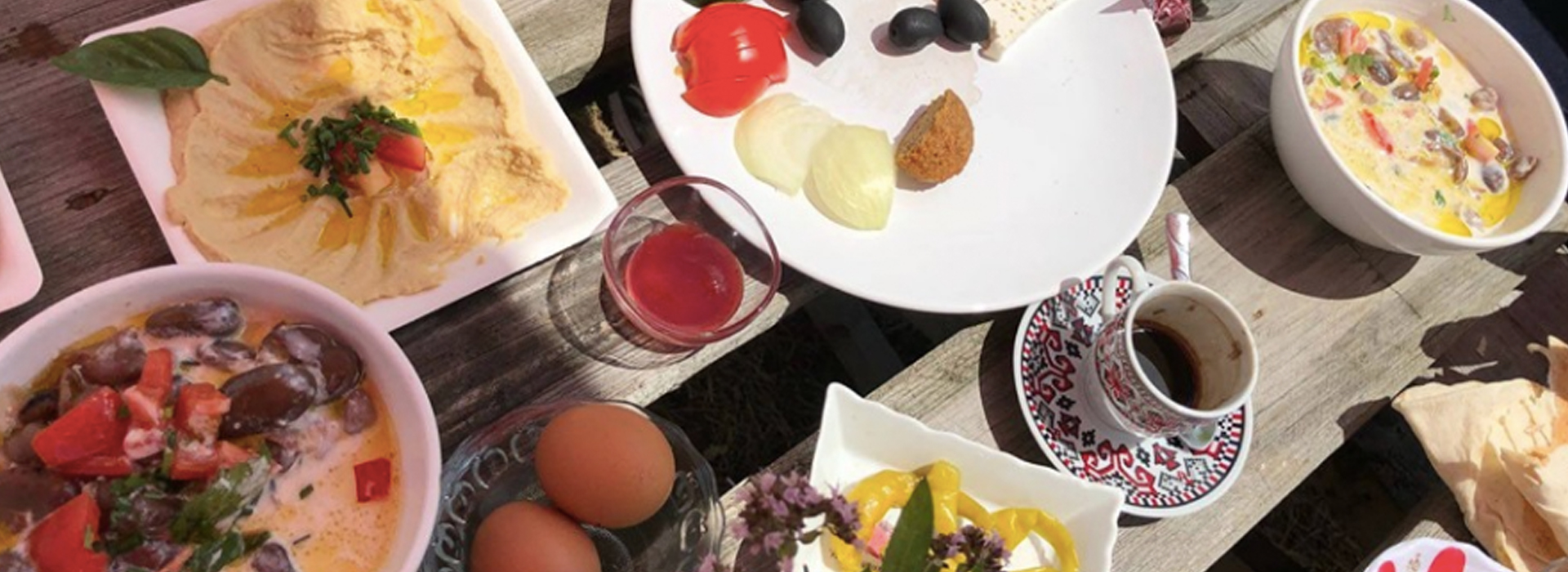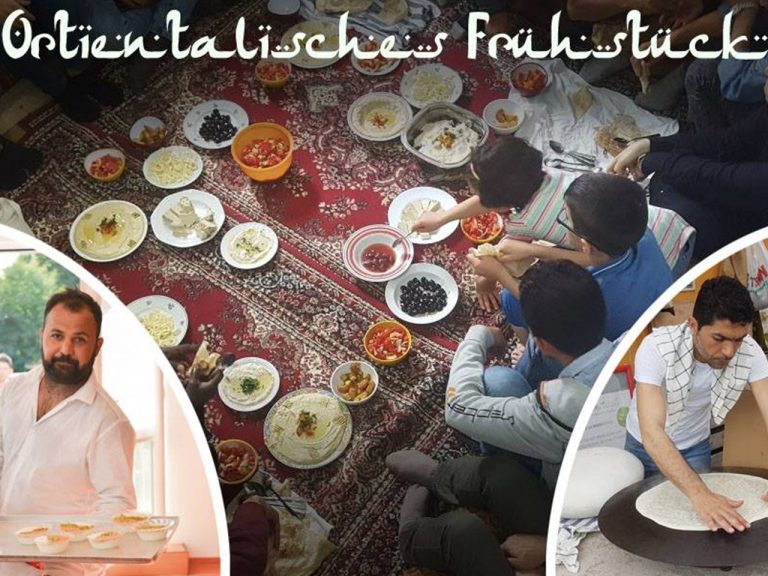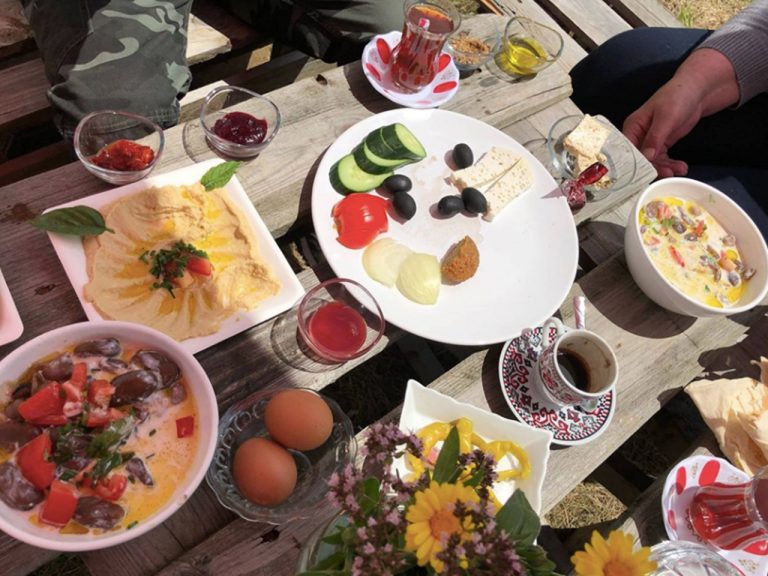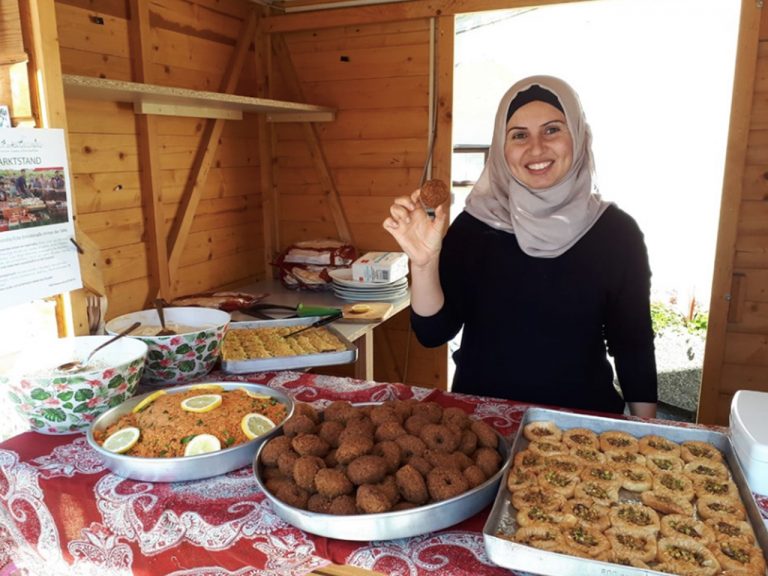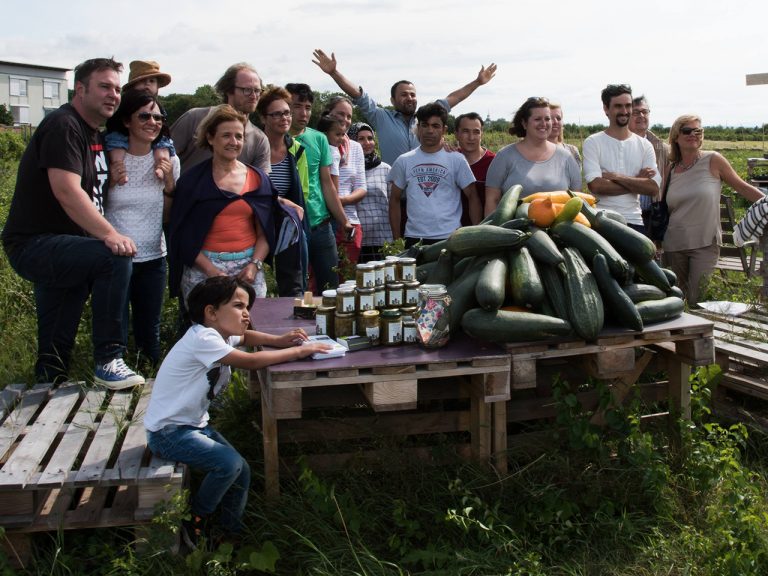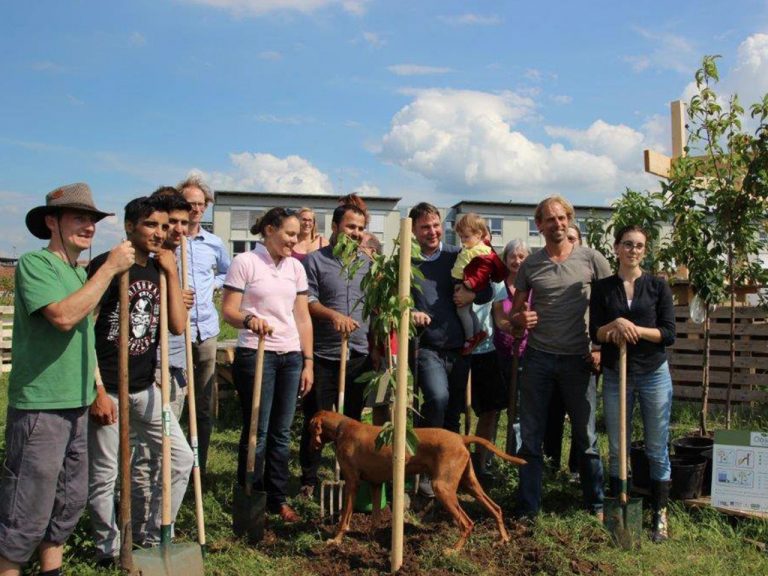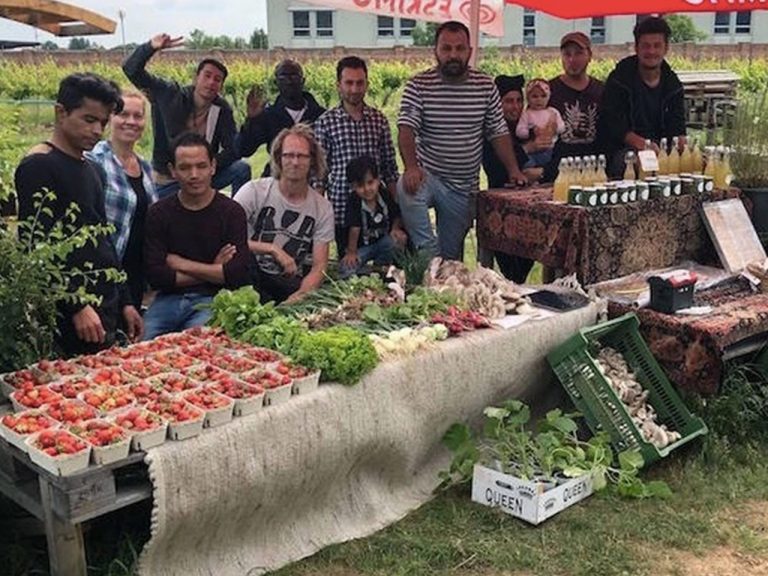Offering breakfast in the garden opens the garden for all the community and creates linkages between migrant gardeners and other people. At the same time it has become a professional and economically viable activity.
Description of the activity
The oriental breakfast is a regular event where the gardeners invite locals and friends for a delicious oriental brunch in the garden. It takes place every Saturday with more gaps in the cold season in a befriended café in Vienna. The breakfast is available on a donation basis and is operated by migrants who get compensation for their work. Implementing this activity was a big step for the project in building a bridge to locals through food and boosting the self-empowerment of the migrants through work in a team with different areas of responsibility. Because the breakfast is on a donation basis migrants can easily participate. The activity started very small and after a good advertising campaign they soon reached 50-80 guests every Saturday. In addition to having your breakfast with your friends and family or celebrating your birthday in the garden you could also buy fresh vegetables from the booth, after having your breakfast.

 English
English  Deutsch
Deutsch  Español
Español  Svenska
Svenska 